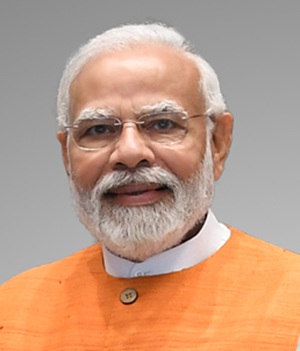Feb 22, 2026
Feb 22, 2026
How ‘Leadership’ Defines a Nation’s Destiny
What drives a nation from inertia to influence? Is it policy? Resources? Timing? Or is it something far more elemental — the person at the helm? What if the arc of a nation’s rise or fall hinges not on committees or manifestos, but on the conviction and clarity of its leadership?
History is replete with examples that affirm a profound truth: Leadership is not just a variable — it is the catalyst.
The India That Was & the India That Is Becoming
 Under the leadership of Prime Minister Narendra Modi, India has undergone a transformation that few could have foreseen a decade ago. In 2014, India was the world’s 10th largest economy. In 2024, it stands as the fourth-largest, with a clear trajectory toward overtaking Germany and Japan to become the third-largest economy in the coming years.
Under the leadership of Prime Minister Narendra Modi, India has undergone a transformation that few could have foreseen a decade ago. In 2014, India was the world’s 10th largest economy. In 2024, it stands as the fourth-largest, with a clear trajectory toward overtaking Germany and Japan to become the third-largest economy in the coming years.
This ascent is not incidental. It is the product of decisive governance, bold reforms, and visionary ambition.
Compare this to the previous regime under Dr. Manmohan Singh. While Dr. Singh was an able economist, his tenure was marked by policy paralysis, coalition constraints, and bureaucratic lethargy. The economy survived. But it did not surge. The defense ecosystem existed. But it did not evolve. Diplomacy was cordial. But it was not catalytic.
From Dependency to Defense: The “Make in India” Revolution
One of the cornerstone shifts under Modi’s leadership has been the Make in India initiative, launched in 2014. This was not merely a slogan — it was a strategic shift to build self-reliance in manufacturing, defense, and innovation.
Today, India is not just importing weapons — it is building its own: from indigenous fighter jets to advanced missile systems like Agni and BrahMos. Under the banner of Aatmanirbhar Bharat, India’s defense exports have grown by more than 300% over the past five years.
In the financial year 2024-25 (April 1, 2024 to March 31, 2025), India's defence exports reached an all-time high of Rs. 23,622 crores (approximately USD 2.76 billion). This marks a 12.04% increase over the previous year (2023-24), when exports stood at Rs 21,083 crores.
India has gone from dependence to deterrence, crafting a military capability that no longer leans on foreign goodwill but stands on sovereign strength.
Diplomacy with Spine
India’s foreign policy under Modi has also broken precedent. From standing firm on cross-border terrorism to recalibrating ties with the United States, Russia, and the Middle East, India's diplomacy has asserted its national interest with clarity and confidence.
Be it the surgical strikes post-Uri, the Balakot airstrikes, or the firm stance during the Ukraine-Russia conflict — India no longer responds; it defines the terms of engagement.
The shift is visible at multilateral forums. India speaks as an equal, not an aspirant. As host of the G20 Summit, India championed the voice of the Global South, merging ancient civilizational identity with modern geopolitical relevance.
Global Precedents: When Leaders Define the Nation
This phenomenon is not exclusive to India. Consider the following:
Each of these examples reinforces the same thesis: It is not the land, but the leader, that determines destiny.
India’s New Strategic Doctrine
Modi’s leadership has redefined India’s geopolitical identity. It has elevated India from a regional actor to a global stakeholder. Whether through initiatives like Digital India, Startup India, or Skill India, the thrust has been toward empowering citizens while projecting strength.
There is a new doctrine at play: lead from heritage, act with conviction, and engage with strength. This is not soft power. This is strategic power — with clarity, courage, and competence.
Final Reflections: The Question We Must Ask
What would India’s trajectory have looked like without decisive leadership in the last decade? Would we be the world’s pharmacy, the world’s IT backbone, and a defense force taken seriously on the global stage?
And more importantly, as we look ahead: Will leadership continue to be about vision — or will it once again be reduced to management?
Because when a leader rises, so does a nation.
07-Jun-2025
More by : P. Mohan Chandran